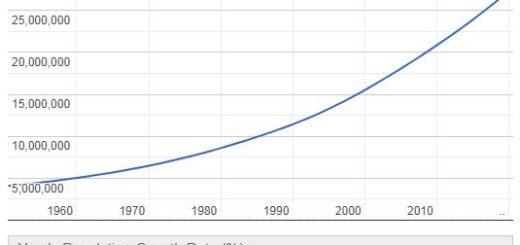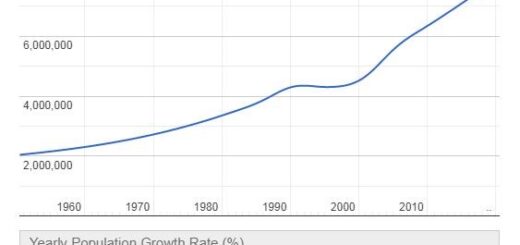Travel to Mauritius
Climate
The climate is tropical maritime, hot, with abundant moisture brought by the trade winds from the ocean. Summer (November to April) is hot and humid: +25 °C at night, +30 °C and above during the day, humidity reaches 80%. Winter (May to October) is cooler and drier: +17 °C at night, +23 °C during the day. The water temperature is +22…+26 °C all year round. See citypopulationreview.com for weather information.
The coolest and most unfavorable periods for holidays in Mauritius are June and July. Despite the comfortable daytime temperature of +20…+25 °C, strong winds blow. But the weather in August-September will suit those who do not like extreme heat.
See also the current weather forecast for the main resorts of Mauritius.
- When is high season in Mauritius
Beaches
All the beaches on the island are sandy, maintained in perfect condition: every day they are cleaned from debris, coral debris and algae. For guaranteed safety of feet in Mauritius, as in any country “with corals”, it is recommended to go into the water in beach slippers (for the most part, this applies to wild beaches). The level of insolation on the island is very high even on cloudy days (proximity to the equator affects), therefore, sunscreens with a high SPF are highly recommended. Plus, of course, do not forget about sunglasses and hats.
Theoretically, Mauritius can be crossed on foot from north to south in less than 24 hours. It stretches for only 65 km in length and a little less than 50 km in width – this is a little more than the average diameter of Moscow.
The place Flic-en-Flac is very popular with the Mauritians themselves for a reason: the beaches there are beautiful, and the Casela Bird Park nature reserve is located nearby. Tamarina Bay has a completely different “profile”: it is the wildest and most pristine on the coast, and due to strong waves it is a “tidbit” for surfers.
In the east of the island is the beach of Bel Mar with deep lagoons and calm waters. Pereybere Beach in the southwest is considered the most “party” on the island. In the southern part of the island, the hilly coastline gives way to the Trois d’Haus Douce beach, which stretches for 11 km as a wide strip of the finest sand.
Nudism in Mauritius is banned.
Hotels
The country does not have a “star” hotel classification system – the categories are conditionally defined, in accordance with the standards of the Swiss Hotel Association, but meet the highest demands. Even in bungalows and small inexpensive studios, living conditions are very comfortable.
As a rule, hotels are divided into categories Super Deluxe, Deluxe, Superior. When choosing a place to stay, you should familiarize yourself with the specific list of services provided.
Most of the hotels in Mauritius belong to the French “chains”. They usually have a large territory and spacious rooms. Many hotels have private villas with pools that provide their guests with complete privacy. The ratio of staff to guests in hotels is very high, so the service is at an excellent level.
Mains voltage 220 V, 50 Hz, three-pin sockets. An adapter can be requested at the hotel.
Banks and exchange offices
The country’s currency is the Mauritian Rupee (MUR), which is 100 rupees per 100 rupees. Current exchange rate: 1 MUR = 1.31 RUB (1 USD = 44.1 MUR, 1 EUR = 46.39 MUR).
Foreign currency exchange is unlimited, it can be done at any bank or at a hotel exchange office (the commission in the latter is higher). Traveler’s checks are cheaper to exchange than cash. The exchange of rupees for foreign currency is made only at the airport when leaving the country. American Express, Visa, Diners, Master Card and travelers checks are accepted in almost all hotels, shops and travel agencies, ATMs are ubiquitous. Banks are open from 9:15 to 15:00-15:30 on weekdays and from 9:15 to 11:15 on Saturdays.
- What is the best currency to travel to Mauritius
Shopping
The most popular natural souvenir is the multi-colored earth “chamarel”. Immiscible layers of pink, orange, yellow, brown and bluish soil are placed in a glass vessel. Also popular are models of old wooden sailboats, cashmere, textiles, vanilla tea, local Green Island rum and, of course, cane sugar. Jewelry with precious stones here is on average 40% cheaper than in Europe.
Shops are usually open from 9:30 to 19:30 (in Port Louis) or from 10:00 to 18:00 (in other cities) on weekdays, on Saturdays from 12:00 to 17:00 in capital, in other cities they usually work longer. Department stores are also open on Sundays from 9:00 to 12:00. Once a week (usually on a Thursday afternoon) Mauritian merchants take a half day off. In the capital, shops are closed on Saturdays, but all outlets on the Codan embankment are open until 18:00-19:30. The largest market on the island takes place in Flacq, it is called: Flacq Market.
Especially lively trade happens every Thursday and Sunday in the town of Quatre Borne, when the local fair opens, as well as in Goodlands on Tuesdays and Thursdays.



